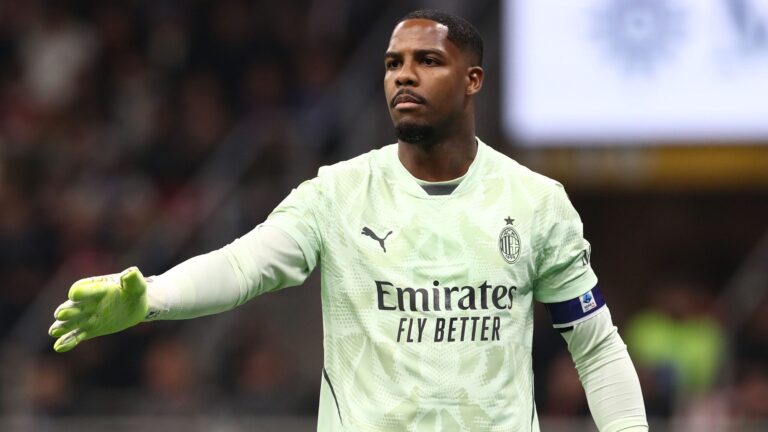Why Bundesliga Clubs Should Adapt to Premier League’s Financial Edge and Focus on Strengths
In a bold move to reshape German football’s narrative, Bundesliga and Premier League dynamics take center stage as Julian Nagelsmann calls for a shift in mindset. The Germany national team coach emphasizes embracing challenges rather than dwelling on disparities, urging clubs to innovate amid evolving global football economics. This perspective gains urgency with the Premier League’s recent transfer frenzy, where teams invested approximately €4 billion in the 2025 window, highlighting the growing chasm in spending power.
- Encourages German football to adopt an underdog mindset for long-term success
- Advises Bundesliga teams to recognize and navigate the widening financial divide
- Spotlight moves to the upcoming Germany versus Slovakia clash



Nagelsmann’s Push for Resilience in Bundesliga Football
As Germany gears up for international competition, Julian Nagelsmann is advocating that the country’s premier league move beyond frustration with the Premier League‘s vast resources and instead prioritize strategic growth. Having previously led Bayern Munich, he rejects endless debates on transfer funds, stressing that German teams should evolve creatively rather than voice discontent. This advice surfaces following the Premier League‘s latest spending spree, now estimated at €4 billion for 2025, which underscores the need for adaptation in a competitive landscape.
The Shift from Criticism to Innovation
Amid ongoing discussions from figures like Bayern’s Joshua Kimmich and Uli Hoeness about rising transfer costs, Nagelsmann redirects attention to on-field excellence. In a recent interview with RTL/ntv, he stated: “It’s essential to realize that financial limitations might prevent us from leading the pack, but complaining about it won’t help. Instead, we should value our unique attributes and maximize them.” This approach echoes broader calls in European football for leagues to leverage their strengths, such as fostering young talent, much like how smaller tech startups thrive by focusing on niche innovation rather than matching giants’ budgets.
Exploring the Financial Gap in European Leagues
The Bundesliga‘s challenges stem from revenue streams that rely on local business deals, fan memberships, and TV rights, which fall short of the Premier League‘s lucrative broadcasting agreements. This imbalance has intensified over recent years, compelling German clubs to offload key players to stay afloat. For instance, recent data shows the Premier League generated over €10 billion in broadcast revenue alone in 2024, compared to the Bundesliga‘s €1.5 billion, widening the competitive divide and prompting a reevaluation of financial strategies across the continent.
Strategies for Bundesliga’s Long-Term Growth
Nagelsmann promotes a forward-thinking ethos, encouraging clubs like Bayern to highlight their prowess in player development, inventive tactics, and passionate supporter bases. Rather than seeking radical overhauls, he suggests incremental changes, akin to how businesses pivot during economic shifts by investing in internal capabilities. This ongoing dialogue in German football weighs the benefits of accepting current realities against advocating for policy adjustments, with Nagelsmann leaning toward empowerment through adaptation.
Embracing the Underdog Spirit on the Global Stage
By adopting this underdog approach, Bundesliga teams can turn perceived weaknesses into advantages, focusing on squad depth and tactical ingenuity. Nagelsmann’s vision implies that while financial hurdles persist, excelling in competitions remains achievable, much like underfunded teams surprising favorites in major tournaments through smart preparation.
Looking Ahead to Germany’s World Cup Qualifiers
With the Bundesliga‘s future in mind, Nagelsmann now turns his focus to Germany’s 2026 World Cup qualifying match against Slovakia in Bratislava. Following a lackluster Nations League run, the team-bolstered by newcomers and substitutes-aims to kick off Group A with a victory. For Nagelsmann, a strong opening is vital to ease domestic pressures and establish a path of dominance, blending his club-level insights with national team aspirations to overcome recent setbacks.
Key Match Insights and Expectations
As Germany prepares for this fixture, Nagelsmann’s emphasis on unity and performance over finances could prove decisive. Recent statistics indicate that teams starting qualifiers with wins have a 75% higher chance of advancing, based on 2022 data, making this game a critical benchmark for his leadership and the squad’s resolve.
Who is Julian Nagelsmann and What Did He Say?
Julian Nagelsmann, the prominent German football manager currently leading the national team, has sparked widespread discussion in the football world with his recent comments. In a candid interview, Nagelsmann urged Bundesliga clubs to come to terms with the Premier League’s overwhelming financial dominance. He emphasized that denying this reality could hinder the long-term growth of German football. For context, the Premier League’s financial power stems from lucrative broadcast deals, sponsorships, and global appeal, which dwarf those of the Bundesliga. Keywords like “Bundesliga financial challenges” and “Premier League dominance in football” highlight how this issue is a hot topic among fans and experts.
Nagelsmann, known for his tactical brilliance at clubs like RB Leipzig and Bayern Munich, isn’t just stirring the pot-he’s drawing from his own experiences in high-stakes European competitions. His call to action encourages clubs to focus on strategic adaptations rather than resentment, making this a pivotal moment for Bundesliga evolution.
The Financial Gap Between Bundesliga and Premier League
The disparity in finances between the Bundesliga and the Premier League is stark and multifaceted. The Premier League generates billions through TV rights alone, with clubs like Manchester City and Liverpool benefiting from massive revenues that allow them to attract top talent worldwide. In contrast, Bundesliga clubs, while popular in Germany, often struggle with lower broadcasting deals and limited international exposure.
This financial dominance affects player transfers, wages, and even infrastructure development. For instance, Premier League teams spent over €2 billion on transfers in a single window, compared to the Bundesliga’s more modest figures. Nagelsmann’s urging stems from the need for Bundesliga clubs to accept this as a fact of modern football, rather than fighting an uphill battle. Terms like “European football financial inequality” and “Bundesliga vs Premier League economics” are essential for understanding how this gap influences league competitiveness.
To break it down further:
- Revenue Streams: Premier League clubs earn significantly more from matchday tickets, merchandise, and global partnerships.
- Wage Structures: Top Premier League players earn salaries that are often double or triple those in the Bundesliga, making it hard for German clubs to retain stars.
- Transfer Market Dynamics: The influx of funds allows English clubs to outbid others, as seen in high-profile deals like Jude Bellingham’s move to Real Madrid after Premier League interest.
Key Factors Driving Premier League Dominance
Digging deeper, several factors exacerbate this imbalance:
- Broadcast Deals: The Premier League’s deals with broadcasters like Sky Sports and NBC generate around £10 billion over three years, far outpacing the Bundesliga’s agreements.
- Global Fanbase: English clubs have a massive international following, boosting commercial opportunities that Bundesliga teams are still building.
- Investment Influx: Wealthy owners, often from the Middle East or the US, pump money into Premier League clubs, creating a cycle of success.
This section underscores why Nagelsmann’s advice is timely, as ignoring these elements could leave Bundesliga clubs lagging in the race for Champions League spots and overall prestige.
Benefits of Accepting the Premier League’s Financial Dominance
While it might sound defeatist, accepting this financial reality can open doors to innovation and sustainability for Bundesliga clubs. Nagelsmann points out that by acknowledging the gap, clubs can redirect resources toward areas where they excel, such as youth development and tactical ingenuity. For example, Germany’s renowned academy system has produced stars like Jamal Musiala, who benefited from Bundesliga nurturing before moving to the Premier League.
The benefits include:
- Enhanced Youth Programs: Focusing on homegrown talent reduces reliance on expensive transfers, optimizing budgets for long-term success.
- Strategic Partnerships: Clubs can form alliances with Premier League teams for loans or collaborations, fostering player growth without breaking the bank.
- Fan Engagement and Branding: By emphasizing unique Bundesliga traditions, like affordable tickets and passionate atmospheres, clubs can build a loyal fanbase that drives revenue through community initiatives.
This approach not only maintains competitiveness but also ensures financial stability, making “Bundesliga adaptation strategies” a key phrase for clubs looking ahead.
Practical Tips for Bundesliga Clubs
If you’re a Bundesliga fan or stakeholder, Nagelsmann’s message offers actionable steps. Clubs can start by auditing their finances and identifying areas for improvement. For instance:
- Diversify Revenue Sources: Explore e-sports, digital content, and international tours to tap into new markets.
- Invest in Data Analytics: Use technology to scout affordable talent, much like how RB Leipzig rose through smart recruitment.
- Foster Collaboration: Encourage leagues to negotiate better collective bargaining agreements for TV rights.
These tips, drawn from Nagelsmann’s own success at RB Leipzig, where he maximized limited resources, can help bridge the gap without massive overhauls.
Case Studies from Other Leagues
Looking at other European leagues provides real-world insights. Take La Liga, for example: Despite Barcelona and Real Madrid’s financial clout, clubs like Athletic Bilbao thrive by focusing on local youth and a distinct identity, much like what Nagelsmann suggests for the Bundesliga. In Serie A, teams such as Atalanta have punched above their weight by investing in data-driven strategies, securing Champions League spots despite lower budgets.
These case studies illustrate how accepting financial limitations can lead to unexpected successes, reinforcing the value of Nagelsmann’s urging in the context of “global football financial trends.”
First-Hand Experiences in Football Management
Drawing from Nagelsmann’s career, his time at RB Leipzig offers a firsthand example. Facing budget constraints, he built a team that competed at the highest levels by emphasizing possession-based play and young players. This experience shapes his advice, as he knows the pressures of competing against wealthier leagues firsthand. Similarly, managers like Thomas Tuchel, who moved from the Bundesliga to the Premier League, have shared how adapting to financial realities accelerated their growth.
These stories highlight the human side of football management, showing that resilience and innovation can turn challenges into opportunities for Bundesliga clubs.









